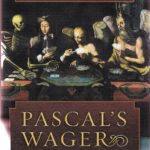Pascal’s Wager is a relevant argument for those who find themselves questioning the existence of God. Many people struggle with faith and belief in a higher power because they feel that there is simply not enough concrete evidence to prove that God exists. However, Blaise Pascal, a renowned mathematician, physicist, and philosopher of the 17th century, believed that it is rational to believe in God, even in the absence of concrete evidence. How did he arrive at this conclusion? Let’s explore Pascal’s Wager and why it is an important concept for belief in God.
What is Pascal’s Wager?
Pascal’s Wager is a philosophical argument that suggests that it is safer to believe in God, even if there is no empirical evidence to support His existence. Pascal believed that the potential rewards of believing in God far outweighed the potential costs of not believing. In essence, he argued that if you believe in God and He does exist, then you stand to gain eternal happiness in heaven. However, if God does not exist, you may have lived a moral and fulfilling life, but the loss would be catastrophic compared to the potential gains of eternal life.
Why Pascal’s Wager Matters
Despite being put forth hundreds of years ago, Pascal’s Wager remains a relevant concept for believers today. The wager forces us to examine our beliefs and understand how they impact our lives. If we believe in God, we are more likely to live our lives with purpose, morality, and compassion. The Bible encourages us to have faith in God, reminding us in Hebrews 11:1 that “faith is the assurance of things hoped for, the conviction of things not seen.” Faith can give us hope, strength, and direction, even in the toughest of times.
Pascal’s wager also recognizes that we cannot prove the existence of God through empirical evidence. However, we can use reason and probability to make an educated conclusion about His existence. In fact, many scientists and academics believe in God precisely because they see evidence of His handiwork in the complexity and order of the universe (see my post on the Teleological Argument).
Counterarguments and Criticisms
Of course, Pascal’s Wager is not without its fair share of critics. Some argue that the wager is too simplistic and fails to take into account the complexities and nuances of belief. They claim that genuine, heartfelt faith cannot be based solely on the potential rewards or consequences of belief. To be sure, faith requires personal conviction and a willingness to trust in something greater than oneself.
Despite the criticisms leveled against it, Pascal’s Wager remains an important concept for belief in God. The wager encourages us to explore our beliefs, understand the role that they play in our lives, and recognize the potential rewards and consequences of those beliefs. Whether you are a scientist, a philosopher, a believer, or someone who is simply curious about the existence of God, Pascal’s Wager can help you make an educated decision about the nature of the universe and your place in it. With faith, hope, and love, anything is possible, even if we cannot prove it empirically.
For more about Pascal, consider this book:






